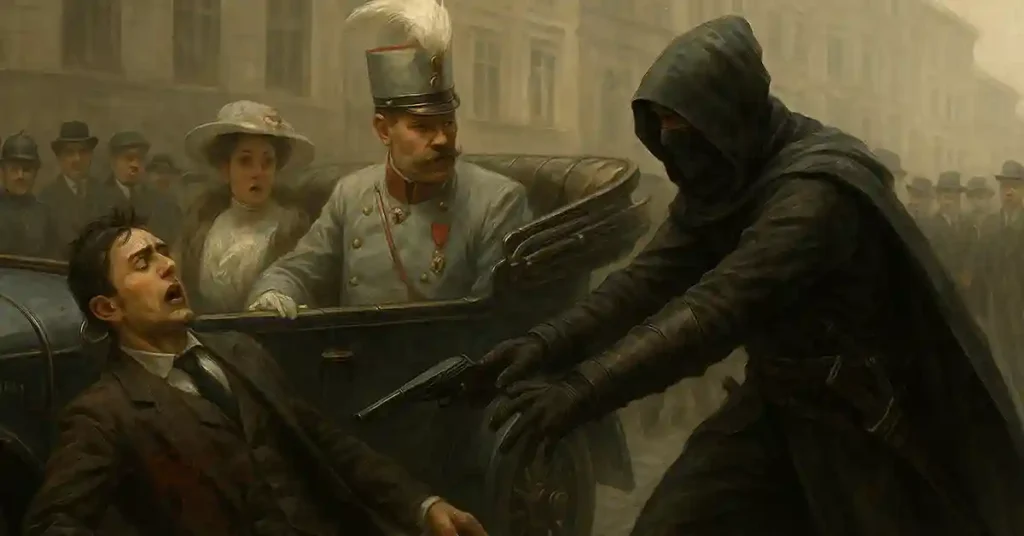Time travel assassin. Just saying it out loud feels like opening a door to chaos, doesn’t it?
Imagine you’re part of a covert organization with the ability to travel through time. Your job? Alter history by eliminating key figures or disrupting pivotal moments—surgically, invisibly, and with devastating precision.
Here are five real-world events that would be prime targets for a time travel assassin, each offering the potential to rewrite the world as we know it.
1. The Assassination of Archduke Franz Ferdinand (1914)
Mission: Prevent the assassination to stop World War I.
You thought the first job would involve killing someone, didn’t you? Nope—sometimes not killing is the mission. A time travel assassin could be sent back to Sarajevo to neutralize Gavrilo Princip and ensure the Archduke survives. Why? Because the domino effect of that one murder led to a global war, which set the stage for an even worse sequel: World War II.
Imagine a world where two global wars never happen. Would technology advance slower? Would the Cold War vanish from history? Would you still be reading this on a screen?
2. The Fall of Constantinople (1453)
Mission: Eliminate Sultan Mehmed II before the siege.
The fall of Constantinople marked the end of the Byzantine Empire and sent shockwaves through the Christian world. It also rerouted trade, fueled the Renaissance, and pushed Europe toward exploration (hello, colonization). Stopping Mehmed II might preserve Byzantium—and radically alter global religion, politics, and science.
Also: the thought of a time travel assassin slipping through the shadows of ancient Constantinople to get close to the Sultan? Pure cinematic gold.

3. The Manhattan Project (1940s)
Mission: Assassinate key scientists before the A-bomb is built.
What if you were tasked with ensuring nuclear weapons never existed? The Manhattan Project brought together brilliant minds like Oppenheimer and Fermi to create the atomic bomb. A time travel assassin could be sent to discreetly “remove” them before their ideas could reshape war forever.
But here’s the twist: would the Soviets get there first? Would the world be better… or far, far worse?
4. The Invention of the Printing Press (circa 1440)
Mission: Prevent mass communication before it starts.
Sounds crazy, right? But picture a dystopian regime bent on maintaining control by ensuring the masses never gain access to books, ideas, or revolutionary thinking. The printing press was the spark that lit the Reformation, the Enlightenment, and ultimately democracy itself.
From the regime’s perspective, a time travel assassin eliminating Johannes Gutenberg might preserve obedience for centuries. (Bonus irony: this blog post wouldn’t exist in that timeline.)
5. The Moon Landing (1969)
Mission: Sabotage Apollo 11 to delay space exploration.
Not all targets are violent. Sometimes a mission requires disruption, not elimination. Sabotaging the moon landing would delay humanity’s reach for the stars, keeping our feet—and our ambitions—firmly planted on Earth.
Who would want that? A future AI overlord that fears space colonization? A rival government from the year 2400? Or maybe someone who just really hates Buzz Aldrin.
Final Thoughts:
The idea of a time travel assassin is thrilling because it forces us to think about cause, effect, and just how fragile the threads of history really are. These five events are just the tip of the temporal iceberg.
The real question is—if you had the power to change history with one well-placed move… would you?
Or would you be smart enough to leave the past alone?
Click here to read about the grandfather paradox: what happens when history is changed?
